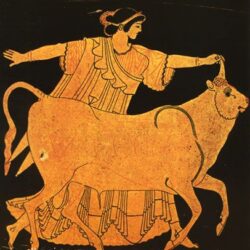After reading the troubling first-hand accounts of Nazism in “Facing History and Ourselves: Holocaust and Human Behavior”, it is clear that fascist propaganda played a large role in widespread antisemitic ideology. One story that stuck out to me was “Changes in School” where Ellen Switzer documented the habits of her classmate Ruth, who was a dedicated Nazi. In my understanding of the text, Ruth seems to be a relatively young girl who is deeply involved in Nazi behaviors and issues, but she seems to lack a general understanding of what she is truly supporting. She even tells her friends that the antisemitic propaganda that she distributes is not targeted towards them, but other Jewish people instead. When the time came that “Aryan” Germans could no longer associate with Jewish people by law, Ruth states, “The whole thing may be a misunderstanding. . . But meanwhile, Hitler must know what he is doing, and I’ll follow orders,” (175).
Similarly, in the section titled “No Time to Think” under the subheading “Too Late”, a father discusses how the debilitating effects of Nazism overwhelmed him all at once when he noticed his young son mirror antisemitic behavior.
These two examples led me to the question: what effect does propaganda have on children and how does it benefit the party in power? In both cases I have mentioned, impressionable children are pushed to accept immoral, horrible ideology which leads them to perpetuate the issue and deepen the preexisting problem through future generations.

Europe’s Long 20th Century (HIS270 S21)
A Contentious Continent
Elizabeth, I had not been thinking about the effects of propaganda on the youth, but you make some very good points. When reading the account from “Changes in School” it made me think of a scene from one of the greatest movies (in my opinion) Schindler’s List. The scene is very disturbing as a young girl no more than 10 years of age is viciously screaming at the Krakow Jews as they are being taken out of the ghettos. I wondered if the girl even realized the impact of what she was saying. This goes back to your point that young minds are easily influenced. To answer your question, I think that the goal of the party was to gain as many supporters as they could, and why would they not want to start them at a young age when they can influence their views for years to come.